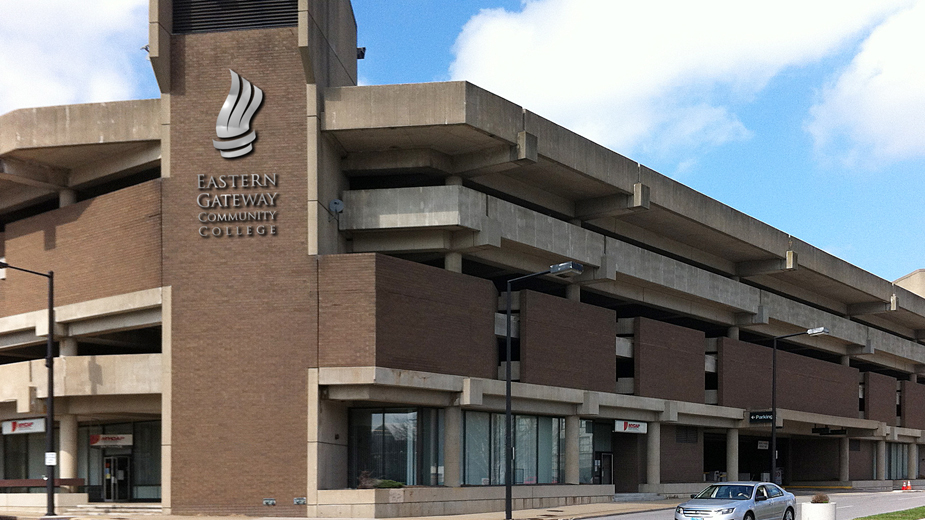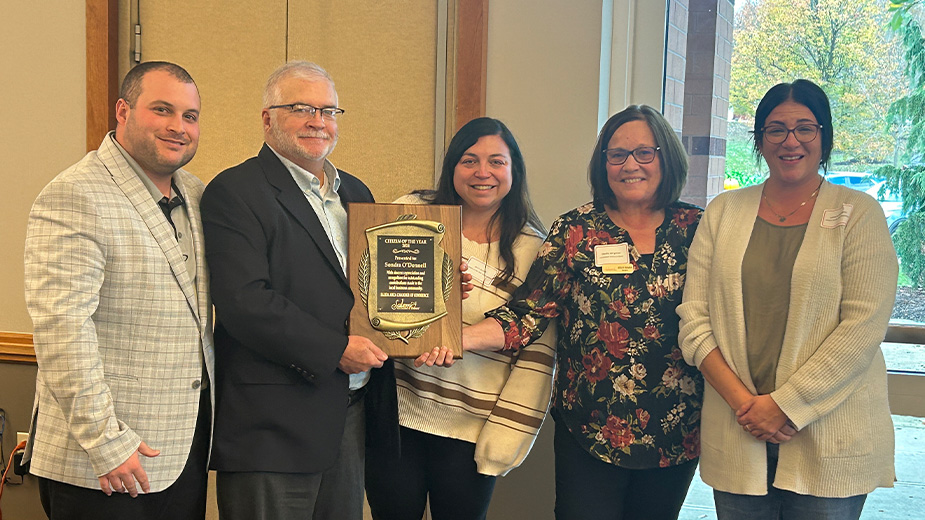Expanding Efforts to Address Cyber Workforce Gap
HERMITAGE, Pa. – The growing need for cybersecurity workers in the U.S. is critical, with major implications for both national security and economic prosperity.
That was the message Tuesday from Harry Coker Jr., White House national cyber director, who spoke to the press and community leaders during an event at the eCenter@LindenPointe, hosted by the Pennsylvania Cybersecurity Center.
The event highlighted the critical need for public, private and academic collaboration to address the growing shortage of cybersecurity professionals in the U.S.
Coker, who was confirmed as national cyber director in December 2023 and previously held senior roles at the Central Intelligence Agency and the National Security Agency, underscored the urgency of filling the estimated 500,000 open cybersecurity jobs in the U.S., including nearly 12,000 positions in Pennsylvania alone.
“Filling the hundreds of thousands of open cybersecurity jobs will require unprecedented coordination between the public and private sectors, academia and employers,” Coker told the audience. “This community is stepping up.”
New Cybersecurity Center
Coker announced that the Pennsylvania Cybersecurity Center will establish a new cybersecurity center, housed within the eCenter@LindenPointe, to address the growing demands of the sector. The center will provide a range of educational opportunities, from in-person classes and camps to state-of-the-art cyber ranges for training and penetration testing.
“The Biden administration is working to remove the four-year college degree requirement for all cyber and technical jobs in the federal government,” Coker said, noting that this change will help open up cybersecurity careers to a broader range of candidates.
Bradley Calleja, executive director of the LindenPointe Development Corp., which manages the eCenter and oversees the Pennsylvania Cybersecurity Center, shared the organization’s rapid growth over the past three years.
“The Pennsylvania Cybersecurity Center has flourished from an idea to a pilot to a program that is now garnering national attention – all in less than three years,” Calleja said.
In partnership with Penn State University, the center has already provided cybersecurity training and certification programs to more than 120 high school students, college students and adult learners in western Pennsylvania.
Calleja noted that this effort is part of a broader initiative to connect young talent with local businesses, professional networks and educational institutions.
The center’s success was bolstered by a $1.15 million grant from the Appalachian Regional Commission’s POWER (Partnerships for Opportunity and Workforce and Economic Revitalization) initiative, which has supported the expansion of cybersecurity training programs throughout Pennsylvania.
“This funding will not only provide students of all backgrounds with access to education in one of the most in-demand industries, but will also serve as a feeder program for the cybersecurity sector as a whole,” Calleja said.
New Pilot Program
In addition to expanding general cybersecurity training, the Pennsylvania Cybersecurity Center is launching a new pilot program in partnership with Mercyhurst University.
The program will offer a dual-enrollment online cybersecurity course for high school students on the autism spectrum and with other diagnoses.
The course, which will be free for students across northwest Pennsylvania, is funded by donations from the Joy Cone Co. and the Margaret Walker Charitable Foundation.
“There are currently 70-plus degree-seeking students enrolled through the autism initiative at Mercyhurst University, and cybersecurity is their most popular major,” said Craig Columbus, chair of the LindenPointe Development Corp. Board of Directors. “This pilot is about reaching out to that population earlier, in high school.”
Columbus, who has a personal connection to the cause as the father of a 25-year-old with autism, highlighted the unique skills that neurodivergent individuals can bring to the cybersecurity field.
“Whether it’s an aptitude for pattern recognition, remarkable focus or attention to detail, individuals on the autism spectrum have some very unique skills to offer in this national cyber mission,” he said. “Industry and government agencies are actively recruiting neurodivergent individuals for cybersecurity roles, and that is a beautiful thing.”
Coker praised the Pennsylvania Cybersecurity Center’s efforts, noting that the organization is currently working with 10 high schools and aims to expand to 69 high schools across eight counties by 2026.
He also pointed to other examples across the country where communities are addressing the cybersecurity workforce gap through innovative approaches, such as providing cybersecurity education to students without requiring a four-year degree.
“I’ve seen a lot of best practices as we’ve gone around the country,” Coker said. “Here in Hermitage, you have added to that list of best practices.”
Strategy
Coker’s visit comes as the Biden administration continues to implement its National Cyber Workforce and Education Strategy, released in March 2023.
The strategy is built around four key pillars: equipping every American with foundational cyber skills, transforming cyber education, expanding and enhancing America’s cyber workforce and strengthening the federal cyber workforce.
Meeting the demand for skilled cybersecurity workers is an urgent concern, with an (ISC)² Cybersecurity Workforce Study estimating 411,000 unfilled positions in the U.S. as of 2022, a 9% increase from the previous year. The same study found the global cybersecurity workforce shortage to be even more severe, with an estimated 3.4 million unfilled positions.
Coker said The Pennsylvania Cybersecurity Center’s work in the Shenango Valley is helping to ensure that students are well-prepared to meet the demand for cyber talent, no matter what educational or career path they choose.
He emphasized the importance of this local effort in contributing to the nation’s overall cybersecurity readiness.
“You are doing a great job in Hermitage, and our nation will be safer and more prosperous because of it,” Coker said.
Pictured at top: Harry Coker Jr., White House national cyber director.
Copyright 2024 The Business Journal, Youngstown, Ohio.



